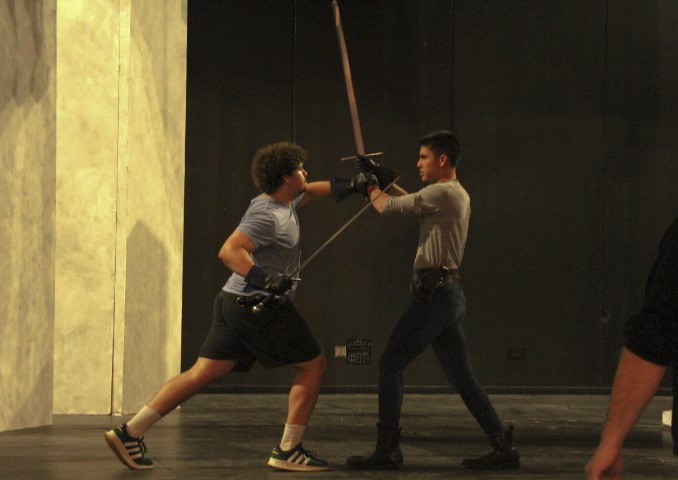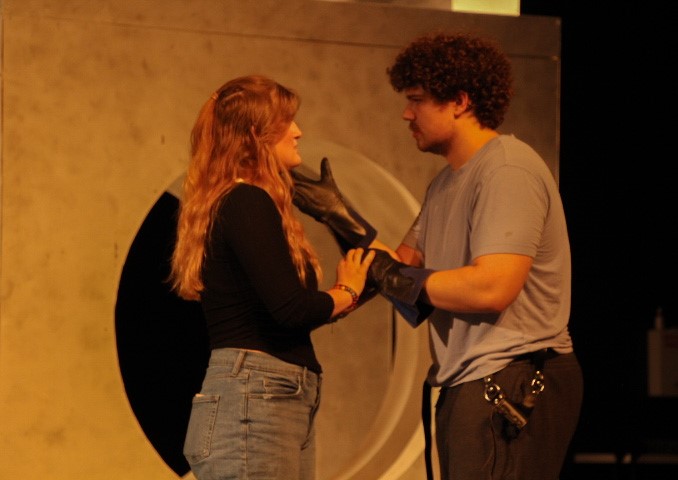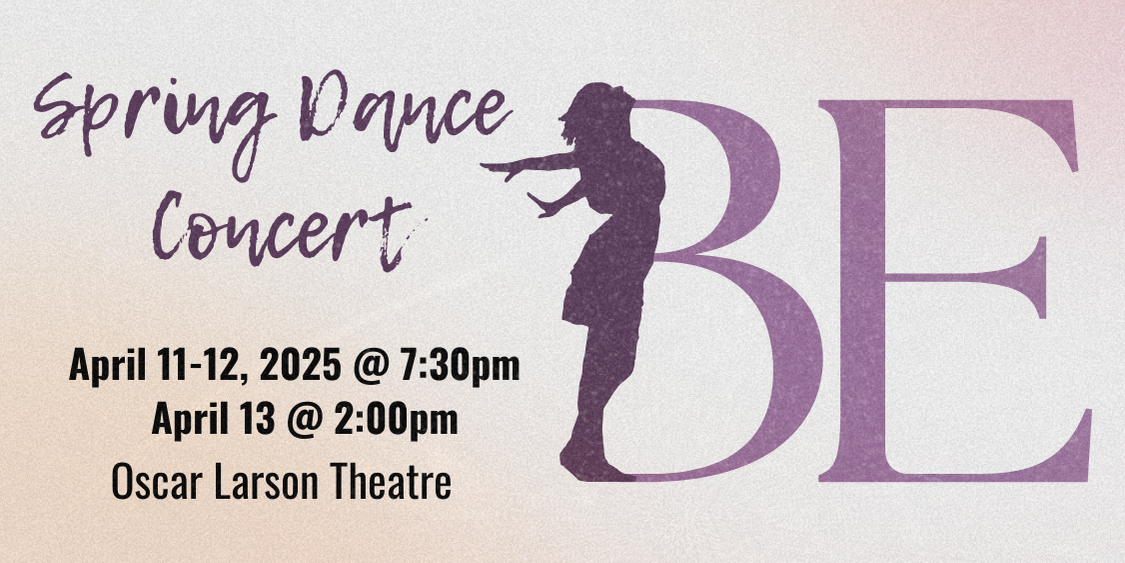The Shakespeare play “Macbeth” is said to be cursed, and some theater companies have seen accidents, injuries – even deaths – while putting on the production
So, why would the SDSU Theatre Department want to present this play?
“As a director, I am always worried,” said Casey Paradies, the director of Macbeth and an instructor at South Dakota State University. “The play is said to be cursed, but I feel like that brings a joy and excitement to the actors.”
Macbeth opens Thursday, Nov. 21, with a showing at 7:30 p.m. at the Oscar Larson Performing Arts Center in the Proscenium Theater.
Macbeth is a play that comes with mystery and superstitions. Accidents, injuries and even deaths during the play itself have caused the show to be proclaimed as cursed.
The curse dates to 1606, to the very first production of Macbeth. Legend has it that the first production was riddled with disaster. There were mishaps with weapons on stage, narrow misses from light sources falling and actors falling off the stage. The actress who played the leading lady, Lady M, is said to have died.
Because of the curse many people are reluctant to even say the name, “Macbeth,” out loud — and even worse, saying it in a theater or around one. This is why you hear many theatergoers and actors call this show, “The Scottish Play,” since nobody wants to risk the curse coming to life.
Paradies said the theme for this year’s Theater and Dance season is “Freedom” and the story of Macbeth fits perfectly in that.
“It is a story of ambition and goes beyond what you are,” Paradies said. “It’s a good representation of getting what you want, to only get it taken away from you.”
Paradies wanted his students to get a chance to act in this classic play. He thought that “Romeo and Juliet” was “too easy,” but he knew he wanted to put on some sort of Shakespeare tragedy. He also knew he wanted a show with combat.
“If you can do Shakespeare, you have great job opportunities,” said Paradies.
“Casting is always interesting,” he said. “You never know who will show up and what they might bring.”
Paradies said he looked for people who had a “natural flare” for that language.
In the casting process, Paradies said he always likes to see how people work together. He calls the casting process a “puzzle” and enjoys seeing it all come together. When doing this, he said he isn’t considering gender for any characters, he just wants to cast some of the characters to have certain qualities.
Paradies said he researched the play to get ready for the show by reading many books and he learned things about Macbeth and Shakespeare’s writing process.
“Macbeth is based on historical truths but [some] are very skewed,” Paradies said. Also, he learned that Shakespeare was “writing for himself.”

When researching, Paradies wanted to learn about the context of what Shakespeare was writing, so, he looked to see what other critics were saying about the script itself. This included reading different editions of the play to see different words to determine what they meant. This is where Paradies learned that many of these scenes are timeless, but there are also parts of the story that are not. He saw this as a chance to figure out what he believed was needed and what was not.
Paradies and the cast of Macbeth think that “nothing (bad) will happen,” because they have been careful to not say “Macbeth” in the theater.
“We have been respectful enough, and we hope nothing will happen,” Paradies said. “The play is in good hands for opening night, so I am cautiously not concerned.”
If you are going to this show, you should know that it includes depictions of violence and blood. There will be fighting with swords, and there are some horrific images. But it is most important to remember that this is just a play, and that these are actors who know what they are doing, Paradies said.
“I hope audiences see how timeless Shakespeare plays are,” Paradies said. “They are very human, and the poetic language is not beyond them; the story is just told in a very artistic way.”



















